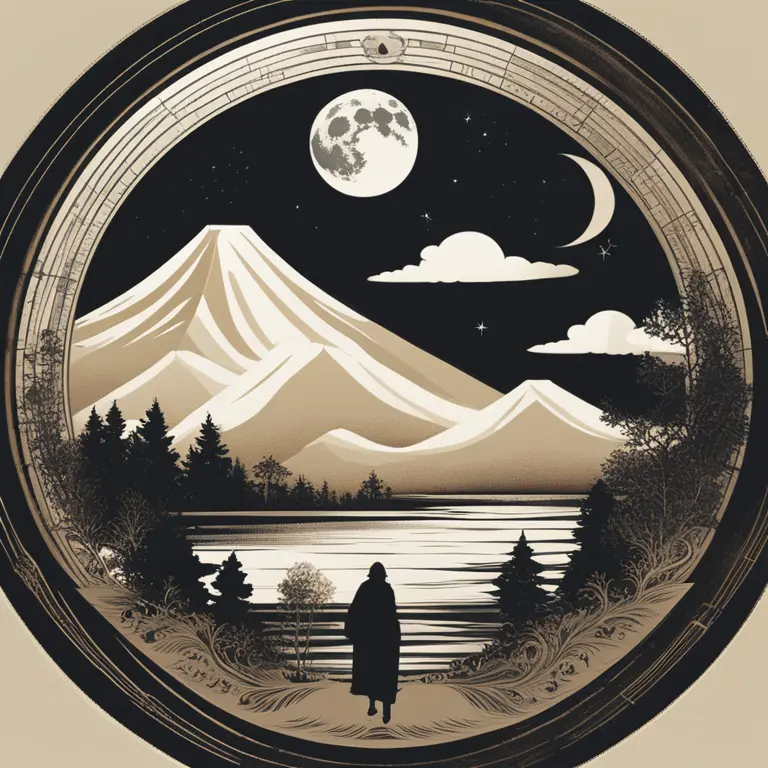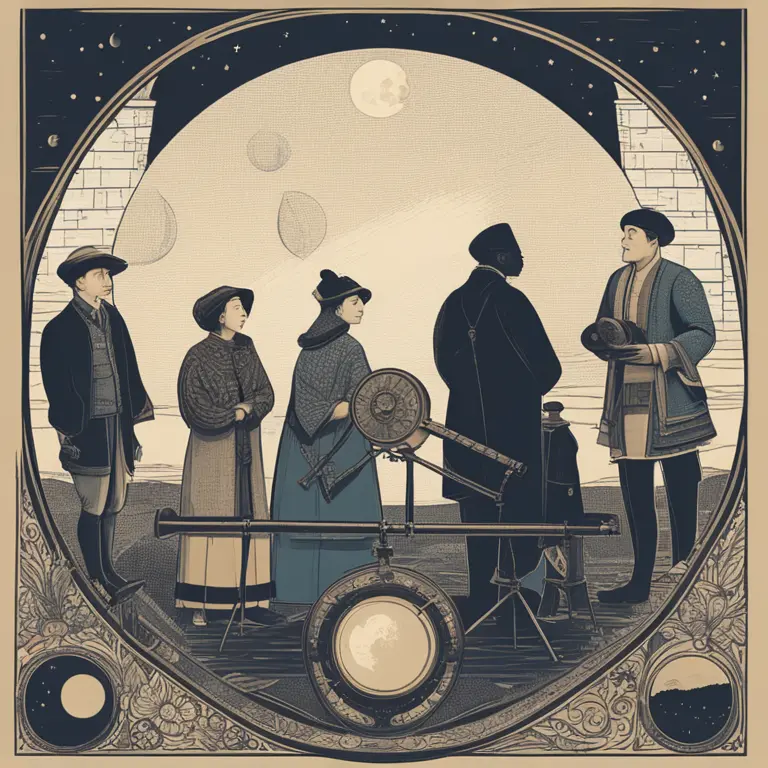
Moon Phases and Weather: Is There a Connection?
Delve into the scientific inquiry on whether lunar cycles have a discernible impact on weather patterns. Is there a celestial influence, or is it mere myth?
article by Priya Deshmukh
Moon Mystique and Meteorology
People have long speculated about the moon's influence on Earth, from human behavior to environmental phenomena. In the realm of weather, the question stands: Does the phase of the moon genuinely sway meteorological conditions? This article seeks to clarify the relationship between lunar cycles and weather amid the persistent folklore and emerging scientific understanding. As celestial dynamics fascinate and perplex observers, let's examine contemporary studies to assess whether the lunar phases hold sway over our atmospheric tides.

Lunar Lore and Historical Observations
The moon's presence in our night sky has inspired countless myths and proverbs. "A ring around the moon means rain soon," an age-old adage, suggests a practical use of lunar observation for weather prediction. But does the science underpinning meteorology endorse these sayings, or is it purely coincidental? Historically, farmers and sailors relied on lunar patterns to forecast weather, yet today's meteorologists turn to advanced technology, leaving folklore at the doorstep of modern forecasting.

Astronomical Forces at Play
The moon influences Earth through gravitational pull, leading to observable phenomena like ocean tides. But can the same force that raises the tides also affect the atmosphere? While the gravitational effect on the atmospheric tides exists, its scale is minuscule compared to the influence of solar energy, wind patterns, and the Earth's rotation. Thus, the role of lunar phases in weather phenomena appears limited, overshadowed by far more potent meteorological forces.

Scientific Scrutiny and Studies
Over the past decades, researchers have sought evidence of lunar effects on weather. Some studies have hinted at potential links, such as small variances in atmospheric pressure during specific lunar phases. Yet, these findings are often surrounded by statistical uncertainties and are not universally acknowledged as significant by the scientific community. It remains a contentious topic, with more rigorous research needed to substantiate any meaningful lunar influence on weather patterns.

The Lunar Phase-Weather Connection
In considering the lunar phase hypothesis, there are intriguing postulations related to atmospheric moisture content, cloud formation, and precipitation cycles. Some theorize that, akin to ocean tides, there could be atmospheric tides that subtly modulate weather. However, any such impact is too subtle to reliably predict weather changes based on moon phases alone. The consensus is clear that lunar cycles are not a prominent factor in the complex web that constitutes weather formation and variation.
The Bottom Line
From an astrological standpoint, the allure of the moon's influence persists into 2024 and beyond. Yet, scientifically, the consensus is that while the moon's gravitational pull is an undeniable force, its effect on terrestrial weather is negligible when compared to the multitude of dynamic systems at play within the Earth's atmosphere. As we continue our celestial journeymanship, let us appreciate the moon's beauty and symbolic powers without ascribing to it undue meteorological prowess.
Published: 1/19/2024
Modified: 1/19/2024
More predictions
Come back here soon to learn more about yourself and your future


Moon Phases: A Celestial Cycle Explored
Delve into the cyclical journey of the Moon, understand its phases, and explore their significance in astrology and personal insight.


The Lunar Cycle: Phases of the Moon
Delve into the celestial mechanics behind the moon's phases and how they influence the rhythm of life on Earth.


Your Moon Phase Match: Find Celestial Harmony
Discover which moon phase best aligns with your personality and how this celestial body influences your life journey.